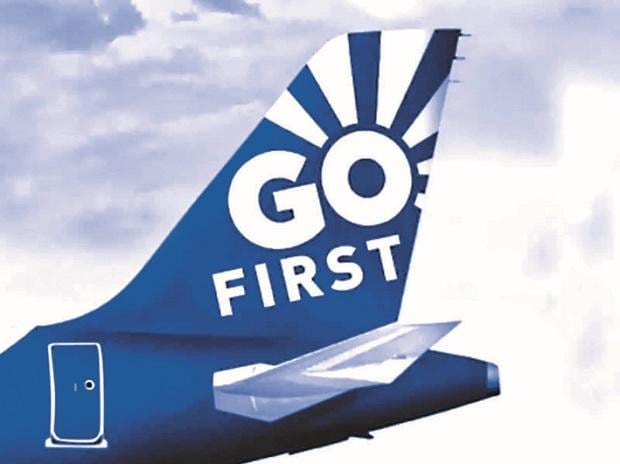Go First’s insolvency flight leaves trail of concerns for aircraft lessors
At least 50 orders to take back as many aircraft as possible from two Indian airlines in less than two weeks. Petitions from lessors seeking enforcement of rights under international standards and concerns about a possible rise in the risk premium for leasing aircraft to domestic airlines.
Cash-strapped Go First was accepted by bankruptcy settlement proceedings on a voluntary request, and the subsequent moratorium has left a series of concerns and uncertainties for aircraft lessors regarding India, the world’s third-largest aviation market.
Presently, Indian airlines have around 700 aircraft and some of them, including Air India, are in the process of expanding their fleet. Most commercial aircraft in the country are operated through a sale-and-lease-back model, and there are concerns that developments related to Go First could push leasing costs higher.
Indian airlines are expected to require more than 2,200 aircraft in the next 20 years.
The perception of India as a high-risk jurisdiction could translate into higher risk premiums for other domestic airlines, said Nilayya Varma, co-founder and CEO of Primus Partners, an advisory firm Public Policy Realization.
“This means higher rental rates for domestic carriers and an increased cost of doing business which implies higher costs being passed on to passengers in the form of higher fares, making it difficult for Indian airlines to compete with their international counterparts,” Varma mentioned.
Regional CEO of Star Air, Simran Singh Tiwana, said the NCLT (National Company Law Tribunal) ruling in favor of Go First may not be very satisfactory to lessors and that is the challenge that Indian aviation can face internationally. “Some provisions will hurt some lessors…these concerns will be expressed (by them).”
A senior airline industry executive said that lessors may think airlines in India can make their lives miserable by going to court. There is also a possibility that more lessors could apply to de-register aircraft leased to some other airlines, the executive said on condition of anonymity, believing they are stuck in litigation.
So far this month, lessors have approached the Directorate General of Civil Aviation (DGCA) to deregister 45 Go First and five SpiceJet aircraft under the Cape Town agreement.
Under the Cape Town Convention (CTC), if the lessor invokes cancellation of the irrevocable registration and export application authorization (IDERA), the aircraft in question must be de-registered. The same must be done within five working days, but because the NCLT has imposed a moratorium under insolvency proceedings, lessors cannot take back Go First aircraft at least for the time being.
Noting that Go First insolvency proceedings are a material development indicating CTC compliance in India, the Aviation Working Group (AWG) has placed the country on a watch list with a negative outlook.
The AWG said in an update on “The DGCA’s failure to process requests for deregistration of IDERA for aircraft whose leases were terminated prior to the imposition of the moratorium within the timeline set out in its SOP leads to a negative outlook for India’s registration…” May 11.
AWG is a not-for-profit legal entity comprised of major aviation manufacturers, leasing companies, and financial institutions. These include Boeing and Airbus.
go first
Lessors have been affected by the Go First crisis, which began when the carrier decided to file a voluntary insolvency settlement claim with the NCLT on May 2. The lessors sought to declassify and repossess 45 aircraft from Go First, which also suspended operations from 3 May.
Shortly after NCLT accepted the airline’s appeal, lead lessor SMBC Aviation moved the National Company Law Appeals Tribunal (NCLAT) against NCLT’s ruling.
On May 11, SMBC Aviation told the Court of Appeal that the Indian aviation sector is seen as a risky jurisdiction in light of the fate of Kingfisher and Jet Airways.
Two other lessors – GY Aviation and SFV Aircraft Holdings – moved the Court of Appeal. These lessors have about 21 aircraft leased to Go First.
The NCLAT panel is scheduled to continue the hearing on Monday.
Go First has about 55 aircraft in its fleet and 28 of them have been grounded due to unavailability of Pratt & Whitney engines. The friction of the planes led to a crisis in funds and forced the airline, which had been flying for more than 17 years, to file for bankruptcy.
Spice Jet
The budget carrier is facing deregistration of at least five aircraft by lessors, and one lessor has filed an insolvency claim against the airline.
“We want to note any speculation that may have arisen due to another airline filing. The airline is very focused on its business and remains in active talks with investors to raise funds,” the airline said on May 11.
Last week, lessors asked the Directorate General of Civil Aviation to cancel the registration of five SpiceJet aircraft.
On May 8, NCLT issued a notice to the carrier regarding the insolvency appeal by AirCastle (Ireland) Limited, and a hearing is scheduled for next week.
The company has about 70 aircraft in its fleet and is looking to revive 25 Boeing 737s and Q400s. Many of its planes are wrecked for various reasons.
Shortly after Go First filed for voluntary bankruptcy settlement proceedings on May 2, Civil Aviation Minister Jyotiraditya Scindia said on Tuesday that “it would be prudent to wait for the judicial process to run its course.”
On May 12, Boeing India Chairman Salil Gupte said that the crisis at Go First will not change the trajectory of the Indian civil aviation market in terms of growth and overall trends while legislative clarity on aspects of aircraft leasing will provide more relief to lessors.
(Only the title and image for this report may have been reworked by the Business Standard team; the rest of the content is generated automatically from a shared feed.)
